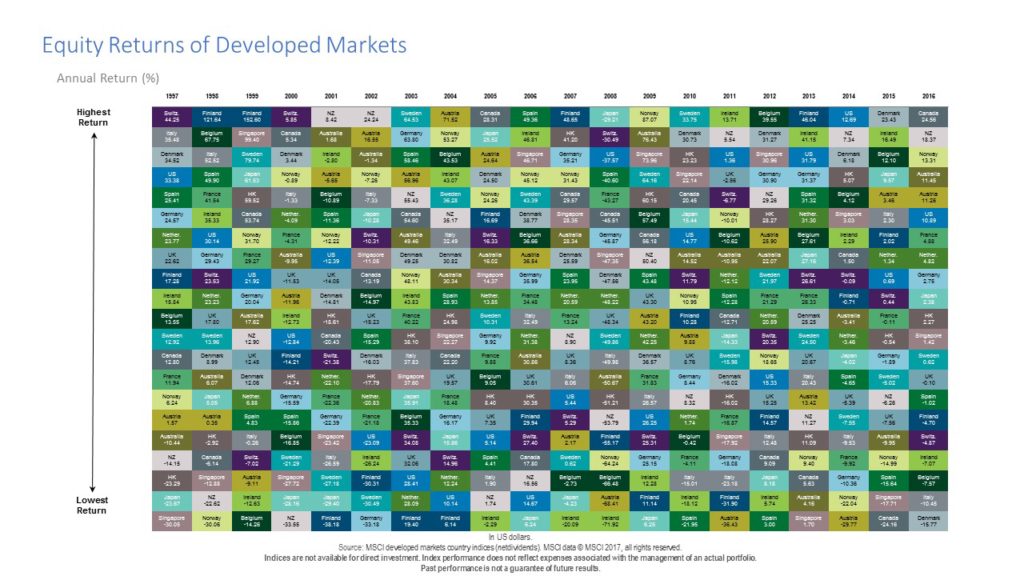What’s THE Most Important Thing You Can Do To Prepare For Retirement?
I was thinking about this question while reading an article a client sent to me. You can find the write-up here, and it’s a helpful “countdown to retirement” with many tips to consider as you approach retirement. As I looked through the list and thought about covering these issues with our own clients over the years, the question came to mind: what is the most important financial planning step you can take to feel great about your retirement plan?

It’s really a tough question since there are a lot of important issues to consider when “taking the leap” away from a career that you’ve had for so many years. Topics such as health insurance, do you have enough saved, are you invested properly, Social Security timing and others are obviously important to explore. There’s also the softer part of the equation: how will you spend and enjoy your time? Should you still work? How will you miss the social aspect of working and contributing?
But if I were forced to answer, what would I say is the most important question? That’s when I realized it’s the one that I have been recommending most lately when helping someone plan for retirement. It’s this simple question: how much do you need to live on (and how sure are you of that?)? > SEE MORE

Posted by:
Pete Dixon, CFP®
Partner and Advisor
Would You Pay For Your Doctor’s Trip To The Bahamas?
What if you knew that your doctor was more highly trained to sell you a specific drug that paid him much more money than any other suggestions he could make for you, even if it wasn’t in your best interest? On top of that, what if you knew that this doctor had sales targets where his income would increase drastically for selling enough of this medicine each month? He could provide you with advice and receive his standard fee, or he could suggest that you take this drug and he would receive $70,000. In addition, if he sold enough of this in a certain time period, the drug company would send him and his family to an all-expense paid, posh trip to the Bahamas. Does he maintain his ongoing education as a doctor? Sure, he does—enough to maintain his license. But more of his training these days is put toward attracting ‘customers’ into his office to convince them to buy this drug. I mean, why wouldn’t he? The opportunity is to make millions more per year, so he’d prefer to hone his skills with talking you into buying more of this drug, and getting to know your friends and family so he can sell it to them too.

Here’s a question for you: would you work with this doctor?
You might say “of course not!” And I certainly wouldn’t either. But what if I told you that this is exactly what is going on in the investment industry? > SEE MORE

Posted by:
Pete Dixon, CFP®
Partner and Advisor
Reminder: Headlines Are Framed to Frighten – Not Enlighten
If we’ve been doing our job as your fiduciary advisor, you might already be able to guess what our take is on the current market news: Unless your personal goals have changed, stay the course according to your personal plan.
Still, it never hurts to repeat this advice during periodic market downturns. We understand that thinking about scary markets isn’t the same as experiencing them.

So, what’s going on? Why have stock prices suddenly become volatile after such a long, lazy lull, with no obvious calamity to have set off the alarms? While we could point out fears of inflation, interest rate movements, and other potential reasons, we can’t (and no one can) know for sure what exactly moves markets on any given day, and this does not inform us of what will happen next. > SEE MORE

Posted by:
Waypoint Wealth Management
Understanding ‘Average’ Returns
The US stock market has delivered an average annual return of around 10% since 1926.[1] But short-term results may vary, and in any given period stock returns can be positive, negative, or flat. When setting expectations, it’s helpful to see the range of outcomes experienced by investors historically. For example, how often have the stock market’s annual returns actually aligned with its long-term average? > SEE MORE

Posted by:
Waypoint Wealth Management
How Should We Rank The World?
Maybe you wonder as you peruse the global news headlines with your morning coffee: “What really IS inside my international investments, anyway?” Or “Did Turkey’s stock market really go up by 252% in 1999?” Okay, maybe that’s a stretch and you’re not wondering about that. While we certainly hope that’s not on your mind, we do think it’s interesting to peek into the world of our investments and point out the messy truths of international diversification–especially with this area of portfolios doing very well as we head to the end of the first half of the year.
Let’s expand on last month’s post (here), where we reviewed the size (market cap) of markets worldwide. What if we could see the last 20 years’ annual performance, in order, for 41 various countries across the globe? More importantly, what can we learn from it? The picture below ranks the annual stock market performance for developed global markets (from highest to lowest) over the last 20 years:

Click here to view an enlarged image
What can we take away from an image like this, to help us to be better investors? > SEE MORE

Posted by:
Pete Dixon, CFP®
Partner and Advisor










